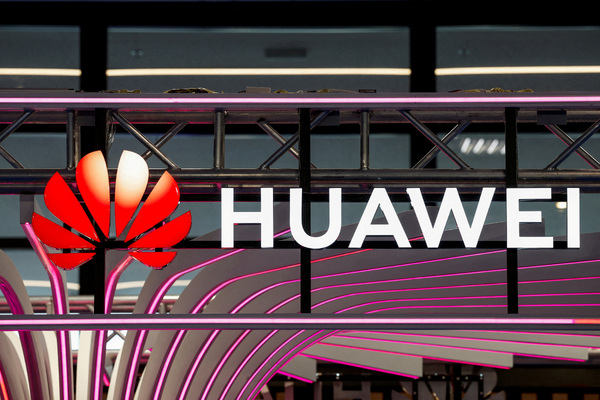Driving the success of levelling up

Wendy Shearer at Pulsant argues that for levelling up to work for business, we need the right regional infrastructure in place
The most recent London Tech Week highlighted how the UK’s capital remains a hotbed for tech and innovation. It’s only enhanced by recent research which found the city is the number one destination for global tech investment in the last decade – outperforming top US cities from New York to San Francisco.
However, UK regions outside the M25 and the M4 corridor have struggled to build a robust technology infrastructure which attracts inward investment and, ultimately, powers economic growth. The government’s Spring Budget was a positive step, announcing 12 new investment zones with funding and tax breaks to support digital technology, advanced manufacturing, life sciences and creative industries.
Alongside other central government programmes such as Project Gigabit and significant private sector investment, this should drive huge progress in delivering digital infrastructure that businesses across the UK can benefit from. This is vital – digital infrastructure is now considered to be the fourth utility, given its importance to modern life.
Choosing the right IT strategies to power these innovation opportunities is essential. As more applications emerge and digital access grows, data volumes and demand on networks will increase.
Change driven by edge infrastructure
This is where edge computing is changing the entire landscape and notions of what is possible. Modern edge infrastructure is almost uniquely capable of managing the huge volume of local data and processing which advanced business applications will generate. It will, for example, make access to content faster and more convenient for the user.
While the potential for change driven by edge networks is endless, it offers the UK’s regional devolved authorities the ability to deliver digitally transformed services in health and social care, education, housing, and transport closer to the user, potentially radically changing the lives of residents.
While the focus needs to remain on completing the network roll-outs, parallel attention and investment must also go into the applications and infrastructure which will drive its utilisation. Public bodies must work with application providers, system integrators and cloud and infrastructure providers to enable that change.
Cities can emulate Greater Manchester Council, which has outlined its forward-thinking digital strategy, aiming to lead by example through the delivery of technology-based solutions in partnership with the evolving regional ecosystem.
The importance of ecosystems
Ecosystems are important because the onus does not just lie on the public sector to create this shift. Edge computing is facilitated by ecosystems that foster collaboration between local authorities and the companies already out there specialising in infrastructure, transport, health, and content delivery. By combining local knowledge and expertise with global connections, these ecosystems become fertile ground for innovation and growth.
Regional data centres and their teams build connections between software providers and their markets, empowering clients to unlock the value of their data. As application-builders converge with businesses in need of solutions, they forge important collaborative partnerships.
Commercial organisations with access to high-speed, high-capacity connectivity and edge infrastructure can leverage the network investment to grow new edge-based products and services. International Software-as-a-Service providers will be interested in offering their advanced applications to previously untapped markets.
Opportunities available with smarter infrastructure
Once new infrastructures are in place alongside the roll-out of 5G mobile connectivity and fibre-to-the-home, it will enable businesses to use industrial internet-of-things (IoT), cloud computing and analytics, AI and machine learning technologies. They can deploy them for their own use or become service providers, creating new revenue streams or building new businesses.
They can use video analytics for remote monitoring of transport, crowd activity or buildings. Highly automated smart port operations will become more widespread. Regional logistics businesses can use new data-driven capabilities to operate highly complex supply chains, while smart agricultural technologies will boost yields and sustainability.
These technologies will enable businesses to transform warehouse management, mining operations, and refining processes through automation, monitoring, and predictive maintenance.
Improving and evolving the infrastructure is about more than providing existing players with new capabilities and markets. This radical shift in regional data accessibility dispels the notion that businesses in geographically remote areas cannot access the speed, connectivity, and localised processing required for advanced applications. Instead, it opens new opportunities for businesses that traditionally did not consider themselves part of the tech sector.
Businesses that achieve success will be able to scale without having to relocate. This is all good news for the UK’s half-a-million developers. By improving infrastructure, they can develop applications and bring them to market without the need to relocate to the South-East. Similarly, designers and engineers can collaborate seamlessly in real-time regardless of location.
For residents in these areas, the benefits will come as increased employment opportunities from economic regeneration and from improved public services, infrastructure and amenities. Smarter technology will deliver access to the full benefits of the data-driven economy and smart technology for businesses throughout the UK.
Cities will be able to deliver smart solutions directly and through a partner ecosystem of specialist providers. By strengthening IT infrastructure, authorities will be able to provide more advanced and efficient services and give developers, entrepreneurs and existing businesses radical new powers to achieve success and help build increased prosperity.
Wendy Shearer is Director of Smart Cities and Ecosystems at Pulsant
Main image courtesy of iStockPhoto.com

Business Reporter Team
Most Viewed
23-29 Hendon Lane, London, N3 1RT
23-29 Hendon Lane, London, N3 1RT
020 8349 4363
© 2024, Lyonsdown Limited. Business Reporter® is a registered trademark of Lyonsdown Ltd. VAT registration number: 830519543
Join the Business Reporter community today and get access to all our newsletters, and our full library of talk show episodes
Join the Business Reporter community today and get access to all our newsletters, and our full library of talk show episodes





